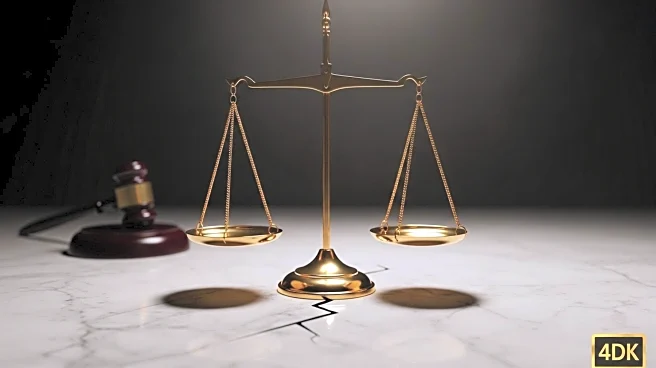What's Happening?
Federal judges are increasingly frustrated with the Supreme Court's vague rulings, particularly in cases involving the Trump administration. Judge Sparkle Sooknanan recently emphasized her authority as an Article 3 judge during a hearing on the deportation of migrant children, highlighting the administration's selective compliance with court orders. The term 'Article 3' refers to judges appointed under Article 3 of the Constitution, which establishes the judiciary. The Trump administration has been criticized for defying lower court rulings, choosing to follow only Supreme Court decisions. This has led to tension between federal judges and the Supreme Court, as lower courts struggle to interpret brief and unclear rulings from the higher court.
Why It's Important?
The ambiguity in Supreme Court rulings poses challenges for lower courts, affecting their ability to enforce the law and maintain judicial integrity. The Trump administration's selective adherence to court orders undermines the authority of lower courts and threatens the rule of law. This situation highlights the importance of clear communication and guidance from the Supreme Court to ensure consistent legal standards across the judiciary. The conflict between different levels of the judiciary and the executive branch can impact public trust in the legal system and the balance of power within the government.
What's Next?
The ongoing frustration among federal judges may lead to calls for the Supreme Court to provide more detailed explanations in its rulings. There could be efforts to strengthen the independence of lower courts and ensure their decisions are respected by the executive branch. The judiciary may seek to address the challenges posed by political pressures and enhance its role in upholding the rule of law. Additionally, discussions about the relationship between the judiciary and the executive branch may arise, focusing on the need for cooperation and mutual respect.
Beyond the Headlines
The tension between federal judges and the Supreme Court reflects broader issues within the judicial system, including the need for transparency and accountability. It raises questions about the ethical responsibilities of judges and the impact of political influences on legal processes. The situation may prompt a reevaluation of the judiciary's role in a polarized political environment and the importance of maintaining impartiality and independence. The long-term implications could include changes in how court decisions are communicated and the development of new standards for judicial conduct.










